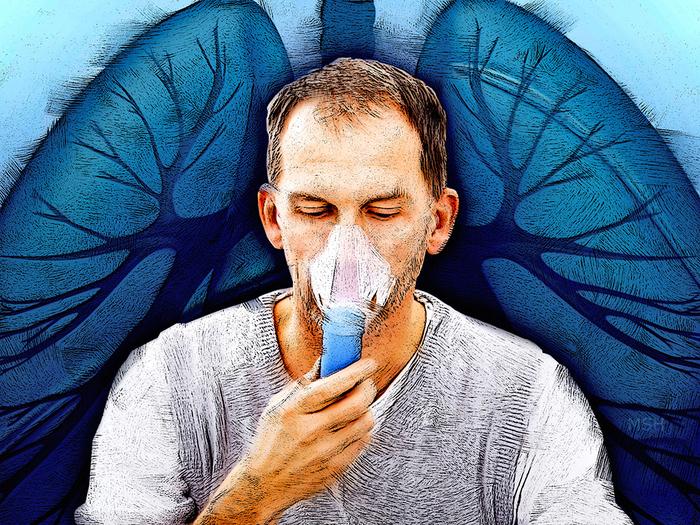

Yale University researchers are studying a potential new treatment that reverses the effects of pulmonary fibrosis.
Credit: Michael Helfenbein illustration.
The treatment uses a microRNA mimic, miR-29, which is delivered to lung tissue intravenously. In mouse models, miR-29 not only blocked pulmonary fibrosis, it reversed fibrosis after several days.
The findings were published Sept. 19 in the journal EMBO Molecular Medicine.
“The mimic, when injected into the blood, goes to the lung and it has a sustained effect. We are very impressed that it can reverse fibrosis, not only prevent it,” said Naftali Kaminski, M.D., a professor at Yale School of Medicine and section chief of pulmonary, critical care, and sleep medicine. He is a corresponding author of the study.
The research is a collaboration between Yale and miRagen Therapeutics, a pharmaceutical company based in Boulder, Colo. The company had developed miR-29 previously as a possible therapy for cardiac disease.
Kaminski, whose group pioneered research in microRNA in lung fibrosis, saw the potential for use of miR-29 in pulmonary fibrosis, as did Eva van Rooij, the scientist who discovered the role for miR-29 in cardiac fibrosis and is a senior co-author on the paper.
“I'm particularly excited about working with this microRNA,” said van Rooij, who now is at the Hubrecht Institute in the Netherlands. “All evidence points to it being a master regulator of fibrosis.”
The next step, Kaminski said, will be to begin evaluating miR-29 as a therapeutic for human Idiopathic Pulmonary Fibrosis (IPF).
Once considered a rare disease, IPF now affects more than 200,000 people in the United States, where about 30,000 people die from IPF every year. The median survival from diagnosis is 3-5 years, and despite recent promising advances there is no intervention that reverses the disease.












